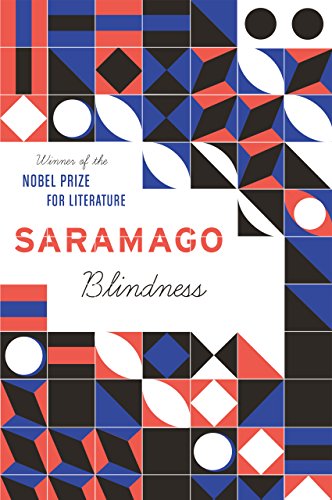Stuff you should read: ‘Blindness’
“Blindness” by José Saramago is the kind of book that blows your mind away and then forces you to take a deep look into yourself to find what’s left in there. I can’t think of anything more frightening than an epidemic of incurable blindness that, in the long run, exposes the worst sides of humanity. The story takes place in an unnamed country and follows the first patients of this blindness, all of them nameless, identified by their professions, their vague details and their interpersonal relationships. What are we without our names? What are we without sight? These are just some of the many existential questions raised by Saramago’s novel.
As if the infectious blindness wasn’t scary enough, the worst part is people’s reaction to the blindness. All the infected are crammed into an empty mental hospital while soldiers monitor their movements and control their meals, and as more infected are forced into the quarantine zones, a dysfunctional and desperate community of blind strangers must learn how to survive in the kind of place that makes life worthless. Saramago illustrates different layers of dehumanization, the loss of identity and purpose, the superficial nature of society and the violent tendencies of humans, always present.
The Portuguese author drives the story with wonderful prose both in descriptions and philosophical discussions, but the language might feel dense as there are no formal breaks in the structure. The novel has no chapters, paragraph breaks, logical full stops or speech marks, but the chaos of this technique fits the story and the world it describes. Sometimes, struggling through the dense passages mirrors the blindness of the story, as it’s hard to pinpoint who is speaking or what is happening to the characters, but that difficulty only forces the reader to focus and work harder. It’s worth the effort. Finishing “Blindness” is a rewarding experience as you realize how much those nameless characters endured, and then you question the purpose of all that suffering, and how it might relate to your own or how it’s a genuine map of human behavior, but either way, the wandering will continue. This book doesn’t give explicit answers to anything. It doesn’t need to. Finding those answers is up to the reader, and that’s what makes the experience of deciphering “Blindness” so unique despite its difficulties.
I know there was a lot I missed when I read the book, so I’ll return to it eventually because some books have new revelations to offer every time we revisit them.
“The difficult thing isn’t living with other people, it’s understanding them.”
“I don’t think we did go blind, I think we are blind, Blind but seeing, Blind people who can see, but do not see.”
“… blindness is also this, to live in a world where all hope is gone.”

























